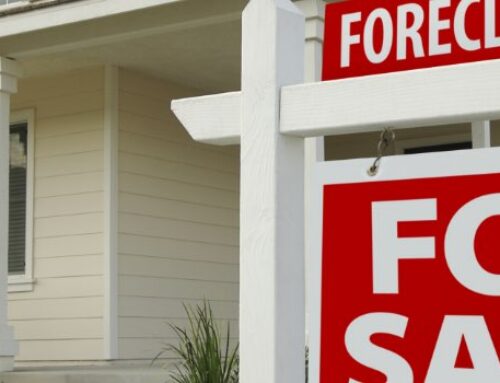You know why we pay local property taxes in the state of Texas. We pay them to fund local government services as well as community maintenance and improvements. By now, you know property taxes are essential to the area in which you live. So, they definitely shouldn’t be taken for granted — especially when it’s time to pay them. Do you know how the process for determining your property taxes works, who is involved in the process or what happens if you don’t pay property taxes in Texas? Keep reading to learn the answers to these questions.
Key Players In The Local Property Tax System
In order for local property tax systems to work, everyone has to do their part. When it comes to determining how much is owed and actually paying that amount back, there are a number of people involved. Here are the key players in all of it.
The Owner of The Property
If you own commercial or residential real estate, you are responsible for paying taxes on it. Most property taxpayers seem to be pretty trusting during the process. We want to believe that our taxes will be determined fairly. Most of the time, they are. But every once in a while, things might not shake out in our favor. Fortunately, there are some steps you can take when that happens. We’ll get into that a little later.
The Appraisal District
This is the agency that is responsible for determining the valuation of your property every year. The taxing district will elect the board of directors, and the board of directors will appoint a chief appraiser who is responsible for running the appraisal office.
The Appraisal Review Board
When property owners want to dispute their accrued property taxes, the appraisal review board (ARB) will hear any disagreements between them and the appraisal district. If the taxing district has more than 120,000 people in it, the ARB is appointed by a local administrative district judge. In areas with smaller populations, the ARB is established by the appraisal district’s board of directors.
Local Taxing Units
These include school districts, counties, cities, junior colleges and special districts. and they help decide the amount that is needed to fund their services, forming a basis for the property tax rates in the area. Some local taxing units, like schools, have access to other revenue sources in addition to local property taxes.
Who Actually Collects The Taxes?
In some counties, that responsibility might fall on the shoulders of the county tax assessor-collector. Once property taxes are collected, they’re transferred to each taxing unit in amounts that satisfy their funding needs. Keep in mind that while a lot of tax units have contracts with appraisal districts to collect their taxes, appraisal districts don’t impose property taxes. It’s up to you to contact the tax units in your district to get the right rate information.
What is The Property Tax Assessment And Penalty Timeline?
If you’re not sure about what happens when, here is a breakdown of the dates from the Texas Comptroller’s Office
January 1 to April 30
Appraisals and process applications for exemptions are completed.
April to May
During this time, appraisal districts will send out appraised value statements.
May to July
Across these months, Appraisal Review Boards will hear all property owner protests. They’ll then make determinations and approve appraisal records.
August to September
Taxing units are scheduled to determine their tax rates during these months.
October 1
Local taxing units or the county tax assessor will start sending out tax bills to property owners.
January 31 of the Following Year
Taxes are due to the local taxing units or county tax assessor.
February 1 of the Following Year
Taxing units begin charging penalties and interest if tax bills aren’t paid.
July 1 of the Following Year
Taxing units can impose more penalties for legal costs that stem from the collection of taxes that haven’t been paid.
What Are The Penalties For Paying Property Taxes Late?
As we mentioned before, when you’re late on your property taxes, interest and penalty fees can start adding up. Some can go as high as 24% depending on where you live.
You should get your property tax bill in November, and payment is due by January 31. If it’s not received by then, you could start accruing penalties on February 1. For example, if you get a $15,000 residential property tax bill, and don’t pay it by January 31, you could face 7% in penalties and interest. So that $15,000 turns into $16,050. Wait until July, and you could be facing 18% in penalties and interest and an additional 20% in attorney fees. That would bring the total to $21, 240. Now just imagine if you get behind on commercial property taxes. The total could snowball out of control even faster. Here are a few charts that illustrate just how quickly interest and additional fees can add up.
| RESIDENTIAL Property — $15,000 Tax Bill | |||||
| Month |
Penalties & Interest |
Attorney Fees |
Total % Increase |
Total $ Increase |
Total Amount Due |
| January | $15,000 | ||||
| February | 7.0% | 7.0% | $1,050 | $16,050 | |
| March | 9.0% | 9.0% | $1,350 | $16,350 | |
| April | 11.0% | 11.0% | $1,950 | $16,950 | |
| May | 13.0% | 13.0% | $1,950 | $16,950 | |
| June | 15.0% | 15.0% | $2,250 | $17,250 | |
| July | 18.0% | 20% | 41.6% | $6,240 | $21,240 |
| August | 19.0% | 20% | 42.8% | $6,420 | $21,420 |
| September | 20.0% | 20% | 44.0% | $6,600 | $21,600 |
| October | 21.0% | 20% | 45.2% | $6,780 | $21,780 |
| November | 22.0% | 20% | 46.4% | $6,960 | $21,960 |
| December | 23.0% | 20% | 47.6% | $7,140 | $22,140 |
| COMMERCIAL Property — $100,000 Tax Bill | |||||
| Month |
Penalties & Interest |
Attorney Fees |
Total % Increase |
Total $ Increase |
Total Amount Due |
| January | $100,000 | ||||
| February | 7.0% | 7.0% | $7,000 | $107,000 | |
| March | 9.0% | 9.0% | $9,000 | $109,000 | |
| April | 11.0% | 11.0% | $13,000 | $113,000 | |
| May | 13.0% | 13.0% | $13,000 | $113,000 | |
| June | 15.0% | 15.0% | $15,000 | $115,000 | |
| July | 18.0% | 20% | 41.6% | $41,600 | $141,600 |
| August | 19.0% | 20% | 42.8% | $42,800 | $142,800 |
| September | 20.0% | 20% | 44.0% | $44,000 | $144,000 |
| October | 21.0% | 20% | 45.2% | $45,200 | $145,200 |
| November | 22.0% | 20% | 46.4% | $46,400 | $146,400 |
| December | 23.0% | 20% | 47.6% | $47,600 | $147,600 |
Here’s a helpful chart of late tax bill penalties from the Travis County Tax Office and the Texas Property Tax Code.
- February 6% penalty, plus 1% interest (7% total)
- March, 7% penalty, 2% interest (9% total)
- April, 8% penalty, 3% interest (11% total)
- May, 9% penalty, 4% interest (13% total)
- June, 10% penalty, 5% interest (15% total)
- July, 12% penalty, 6% interest (18% total)
- August, 12% penalty, 7% interest (19% total)
- September, 12% penalty, 8% interest (20% total)
- October, 12% penalty, 9% interest (21% total)
- November, 12% penalty, 10% interest (22% total)
- December, 12% penalty, 11% interest (23% total)
- January, 12% penalty, 12% interest (24% total)
What Happens If You Don’t Pay Property Taxes At All?
If you don’t pay, your taxing district could place a tax lien against your property. The lien is the overdue amount, plus interest and penalties. According to Texas Tax Code § 33.41, your local taxing authority can actually start the foreclosure process in court at any time once you’re late with your property tax. If you can’t satisfy what is owed, or you can’t successfully defend yourself in regards to the foreclosure, your home can be sold to a new owner at a tax sale. If your home isn’t sold there, it will become the property of the county and sold down the road.
This is a worst-case scenario of what can happen if you don’t pay your property taxes. You might think, “I would never let things get that bad,” but you never know what you might be up against at the time your commercial property tax bill or residential property taxes are due. If you underestimated the impact that your tax bill would have on your personal or business finances, Tax Ease can help.
Get Your Accrued Property Taxes Under Control With Tax Ease
With just five simple steps, you could be closer to getting your delinquent property taxes under control. Tax Ease has made it easier for residential and commercial property owners to get the property tax loans they need to avoid major penalties, fees and foreclosure. While we have three physical locations in Texas — Dallas, McAllen and Houston — we are committed to providing property tax loan relief for the entire state. So, if you need help with your property taxes, start the application process today. It’s quick and easy, but if you have questions about our delinquent property tax loans, don’t hesitate to contact us today. We’ll gladly walk you through the process.








